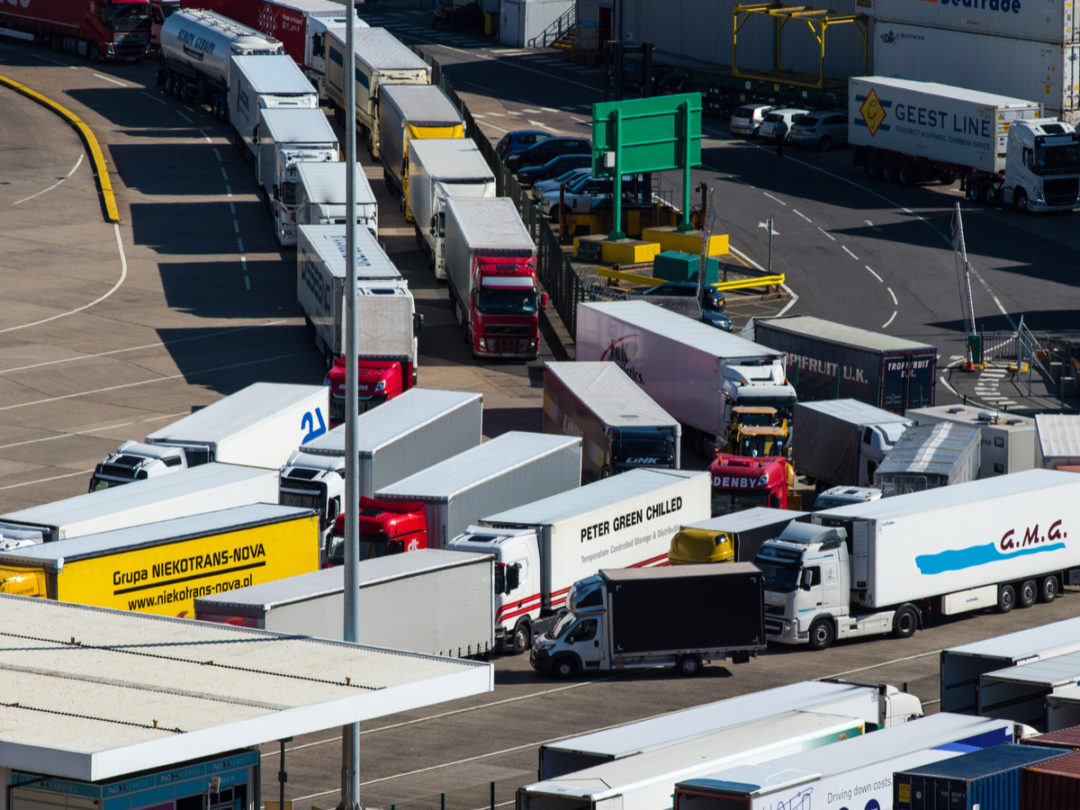
Blown tires, highway pileups and delays: There’s quite a bit that can go wrong with domestic freight shipments between points A and B.
Research shows that 5% of all freight loads have a hiccup while in transit, leaving shipments stranded and businesses scrambling to meet delivery timelines. And those problems are poised to become even more common. According to the U.S. Department of Transportation, recurring peak-period freight congestion is projected to rise from 8% to 35% by 2045, creating delays across nearly 78,500 miles of roadway. It’s clear that the roads will only get busier with the potential for more disruptions, and shippers will need to anticipate that.
Preparation begins with putting the right partners in place to manage and move freight. One area to where more businesses are turning is digital freight brokerage, a market that has exploded over the last several years. Third-party logistics providers have seen 5X growth since 2000, with more expected in the years ahead. The digital-only model can fall short when disruptions happen, however, since 3PLs don’t have their own assets to provide backup if needed.
By working with partners that combine extra capacity with sophisticated tools, organizations can prepare for, and even anticipate, inevitable bumps in the road. Here are two key areas to consider to keep your shipments on track.
Digital brokers connect shippers to a network of carriers ready to bid on their freight. What they don’t have is their own trucks to move the goods if something goes wrong. True reliability means not just depending on the magic of the network. A partner that offers a hybrid solution with actual assets can help keep things running smoothly, by providing trucks from its own fleet if things go astray.
While having a backup plan is important for any shipper, it’s particularly critical for:
- Businesses that ship perishable items, since freshness is paramount.
- Businesses moving shipments in remote locations, where it can be difficult to connect with a carrier, regardless of the rate you’re willing to pay.
- Pivoting quickly in case of inclement weather, breakdowns or other disruptions.
Ideally, your partner should have these resources allocated ahead of time. A good guide is the 5% rule. For example, if you’re shipping 100 loads a week, the broker should allocate five extra trucks to put on standby, just in case a hiccup occurs. That way, there are no delays or excuses, just smooth operations and on-time shipments.
Of course, simply having vehicles isn’t enough. To provide maximum reliability, your supply-chain partner should be able to identify exactly where capacity is needed, before you even need it.
Ideally, partners shouldn’t just assign a carrier to a load — they should also assume that something might go wrong along the way. Tools such as artificial intelligence constantly monitor carrier movements and capacity conditions, providing options for backup trucks based on where the freight is in transit. Digital freight tools have added benefits for carriers, helping them tap into last-minute hauling opportunities if they opt to become part of the fleet recovery network.
Beyond freight recovery, digital brokerage tools provide shippers with the transparency and visibility they need to stay connected each step of the way. This is especially important for perishables or high-value, time-sensitive goods. Finally, they can provide automated customized reports to help shippers understand key indicators such as spending and on-time delivery, and how they’re changing over time. With sharp growth predicted for the next five years, leveraging these insights can help shippers stay ahead of evolving conditions.
Bottom line: A partner with its own assets and technology can help get your freight where it needs to go. By combining the physical and the digital, the provider can not only provide smooth, seamless digital options to manage freight, but also a helping hand should a shipment go awry. Businesses can plan for the future, and the growth that comes with it, with that kind of peace of mind.
Nick Darmanchev is the founder and CEO of Archerhub, an asset-based digital freight broker.







